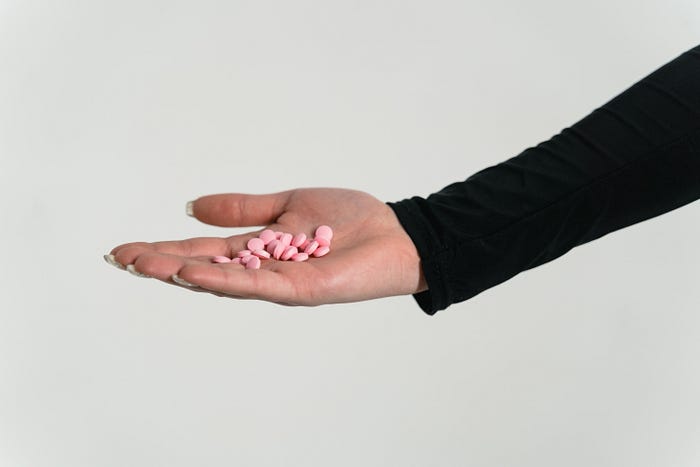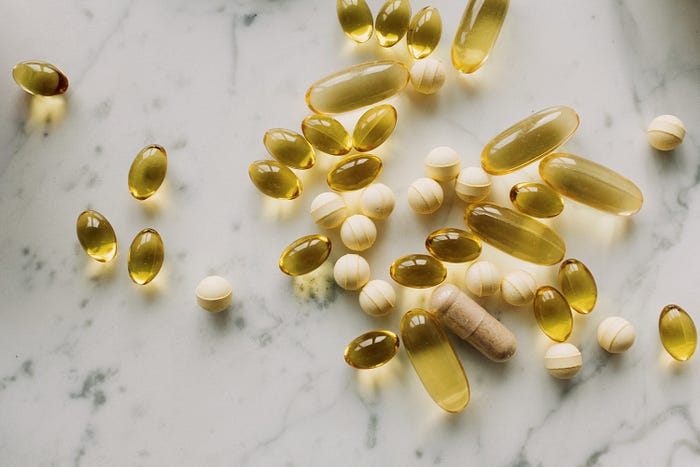What is depression?
Before that, do you know what an illness means? According to the Oxford Dictionary, illness is a disease that affects the body or mind. So, depression is an illness that impacts the mind and leads to other behavioral changes. Depression is not a disease that can be identified in a snap. For instance, performing diabetes tests will help to recognize if the patient has diabetes or not. But depression is hard to recognize as other diseases. That is why the majority of people consult a doctor when their depression level hits its peak. However, a great message I can give is that depression is curable, most importantly without medication. You will know how in further discussion.
How do you know if you are affected by depression?
As I mentioned before, depression is easily undiscoverable. However, normal behavioral changes can be considered symptoms of this disease. For instance, if you were a person who had the habit of sleeping 8–10 hours and waking up at alarm time, and now if you experience,
1. poor sleep
2. lack of concentration
3. loss of memory
4. overeating
5. weight gain
6. low appetite
7. weight loss
8. feelings of guilt, worthlessness, helplessness, restlessness.
9. loss of interest in sex and hobbies
10. suicidal thoughts.
11. indecisiveness
12. lost confidence
13. isolation from friends and family
These are some signs which possibly indicate depression. Symptoms of depression vary from person to person. But any unhealthy behavior change needs to be consulted by a doctor.
What are the popular antidepressant medicines and their side effects?
The popular antidepressant medicine is
1. tricyclic antidepressants -TCAs
2. selective serotonin reuptake inhibitors -SSRIs
3. serotonin-norepinephrine reuptake inhibitors -SNRIs
4. mirtazapine
5. bupropion
6. Venlafaxine
7. Citalopram
8. fluoxetine
9. monoamine oxidase inhibitors (MAOIs)
As per the data published by the World Health Organization (WHO) approximately 280 million people globally have depression.
Imagine, the number of antidepressant drug users in the world. According to research around, 43% of patients with major depressive disorder (MDD) stopped taking antidepressants due to side Effects. Hence, awareness of the side effects of the antidepressant drug is necessary to be discussed. So, I will mention the side-effects of the above-mentioned antidepressant drug.
- Bleeding
- The risk of GI bleeding increased with SSRIs (Risk ratio (RR)=3.0), but not in those with antidepressants having no serotonin reuptake inhibitor property (RR=0.8).
- The risk of bleeding is associated with Venlafaxine.
2. Cardiovascular side effects
- tricyclic antidepressants -TCAs-Higher cardiovascular risk
- selective serotonin reuptake inhibitors -SSRIs-increase the risk of Ventricular arrhythmias(abnormal heartbeat).
- Citalopram-irregular heartbeat
- Venlafaxine-risk of hypertension.
3. Dry mouth
- All antidepressants increases dry mouth
- serotonin-norepinephrine reuptake inhibitors -SNRIs-High risk of dry mouth
- tricyclic antidepressants -TCAs-causes dry mouth
4. Gastrointestinal side -effects
- fluoxetine-causes gastrointestinal side effects like Nausea, vomiting, diarrhea, weight loss, and anorexia{loss of appetite}
- tricyclic antidepressants -TCAs-constipation and weight gain.
- Venlafaxine-vomiting and nausea.
5. Hepatotoxicity (liver damage)
- nefazodone, bupropion, duloxetine, and agomelatine -include a higher chance of liver damage.
- tricyclic antidepressants -TCAs-causes liver damage
6. Seizure
- paroxetine
- citalopram
7. Sexual dysfunction
According to research, 80% of depressed patients from randomized clinical trials reported treatment-emergent sexual side effects.
- citalopram, fluoxetine, paroxetine, sertraline, and venlafaxine- high risk of causing sexual dysfunction.
8. Weight gain
- SSRIs, SNRIs generate weight gain issue
- paroxetine -higher risk of weight gain
- SSRIs including citalopram, escitalopram, fluoxetine, sertraline, and paroxetine, and SNRIs including venlafaxine and duloxetine were associated with weight loss.
Six ways to overcome depression without medicine.
- Intake of omega-3 fatty acid
- Engaging activity
- physical exercise
- sunlight exposure
- social help
- sleep
1.Intake of omega-3 fatty acid
How do omega-3 fatty acids help with depression?
Serotonin and Dopamine are chemical messengers that help the mood become calmer, happier, emotionally stable, focused, motivated, and satisfied.
But, when omega-3 fats are insufficient in the brain, the message sent by these chemicals from one nerve cell in the brain to the next becomes incomprehensible. This Problem causes vulnerability to stress out of control and leads to depression.
Inflammation which acts for a short time is a healthy reaction in the body. But when it lasts for a long time, it is dangerous. It becomes chronic inflammation. Chronic inflammation is triggered by Omega 6 fat. When chronic inflammation dominates, it disrupts the manufacture and use of serotonin. It also reduces the activity in the frontal cortex. It damages the brain region hippocampus, which is critical for memory function. And this causes vulnerability to depression. But intake of an equal amount of Omega 3 fat can help to produce the body’s anti-inflammatory hormones.
2.Engaging activity
The recurring voice from depressed people is ‘’leave me alone.’’ They think that spending alone in isolation can help them overcome their distress. As well, depressed people feel irritated being around people. However, being isolated and giving space for the brain to ruminate worsens the illness of depression.
What is rumination?
Rumination is thinking negatively for long hours. This process happens when you feel demotivated. Most of us spend time ruminating but doing it for a short period and trying to learn something from it is not harmful.
But depressed people ruminate for long hours, which is dangerous.
How can you avoid ruminating?
To avoid ruminating, you must engage in activities to divert your focus from brooding.
Anti-ruminating activities
1.Monitor your rumination.
- Make sure to write down the time of ruminating. Place example: is it during the traffic or cooking?
2. Avoid giving space for rumination.
- After you have written down your rumination list, you can figure out at what instance you ruminate most. For example: if it is while watching television, try replacing it with another activity.
3. Engage in conversation
- It should be a decent two-way conversation.
- Should engage in ruminating conversation.
- The conversation should change your focus.
4. Involve in shared activities
- Doing any activity alone can induce rumination. So, for example, cleaning your house or wardrobe, engaging someone with you. And exchange some giggles and conversation while working.
- Or become a volunteer for someone working alone. For instance, while your father or brother is washing the car, you can aid to be a part of that activity.
5. play
- Any games which involve physical activity is best. Football, netball, badminton.
- online mind-changing games.
6. listen to music
- Sad songs can trigger rumination.
- You have to choose songs that can interrupt your brooding.
7. Brainstorm
- Create your list of activities to do to interrupt brooding. Include things you loved to do before you became ill.
3.Physical exercise
How can physical exercise help depression?
- It increases the activity level of brain chemicals such as Dopamine and Serotonin. (Which is the aim of antidepressant drugs as well).
- Physical exercise enables the brain to produce the key growth hormone called BDNF. This hormone descends during the depression. And it causes the brain to shrink and damages memory. However, exercise helps to regain.
- Sharpens memory and concentration
- helps the brain work effectively
Steps for anti-depressant workout/exercise.
- The best is aerobic exercise.
- Researchers observed powerful healing benefits from aerobic exercise, which causes the heart rate to remain raised for several minutes at a time.
- Check pulse or heart rate before doing aerobic exercise. It depends according to your age.
2. Walking
- Walking would be one of the best ways to begin an anti-depressant exercise routine. Because walking comes naturally, and anyone can do it.
- People with leg injuries or illnesses can opt for other aerobic exercises like kayaking or wheelchair racing. But do it with the doctor’s advice.
3. Duration
- According to research, ninety minutes of aerobic exercise every week provides anti-anxiety results.
- Start doing aerobic exercise gradually, like spending 5 minutes for warm-up. Warm-up 5 minutes doesn’t include 90 min target.
- Split 90 min work out in 3 shorter workout-30 minutes each.
4. Make it satisfy
- Accompany someone who you enjoy, Eg: a personal trainer.
- Take a portable music player or listen to audiobooks.
- Create a purpose: The Drive could be to enjoy nature or enjoy the company of a friend.
- Create a plan before starting any exercise.
- Reflect each day after workout-find what went right and wrong
4.sunlight exposure
How does exposing oneself to sunlight cure depression?
Bright sunlight triggers the brain to the production of a chemical called serotonin. This chemical serotonin helps to keep the brain’s stress response calm. Hence sunny light act as an anti-depressant outcome.
And also, when the serotonin level increases, it boosts feelings of wellness, which is indeed a positive result of anti-depressant.
According to research, people feel an elevation of mood after one or two hours of getting exposed to sunlight.
5.Social support
How social support helps to overcome depression?
Depression causes the feeling of being isolated from society. This feeling arises when the chemical serotonin level decreases. Though the patient thinks being lonely is the best assumption, indirectly, depression illness worsens when isolated. When depressed isolates themselves: their stress level increases, and the patient gives more time for rumination, which are the negative effect of depression.
Let’s look out the ways to be sociable.
1. Disclose to your friend the struggle you are experiencing.
It would be tough to open up, but explaining your situation to your friend can strengthen your friendship.
2. Educate them about the illness of depression
As you know, depression is a disease that is blind to the society
An example story from the book “THE DEPRESSION CURE” by STEPHEN S. ILARDI, P h D.
A Patient was affected by intense depression. He twisted up himself in a fetal position while lying on the floor. He cried and felt energy less to move on. However, in the evening, he felt a little relieved. So, he went to the grocery store. In the grocery store queue, he saw a sick man in a wheelchair, he had wrinkled legs, and one of his arms was disconnected from the shoulder. Every customer in the grocery store glances pityingly and looks at him. The depressed patient felt he was also in a worse situation a while ago, but nobody looked at him compassionately.
So, educating you’re closed once about illness depression is crucial.
3.Ask for help:
Never give up hope on your close ones. Although the disease depression closes the beauty of life yet, that is misled reaction from the brain.
Go forward and ask for help from your friends and family.
4.Growing pets
Caring for animals is another way of building a relationship. The pure love of Animals can stimulate the chemical dopamine and serotonin, which lower stress and boost positive feelings.
6.Sleep
Disorders in sleep can be a symptom of depression as well due; to depression disruption in sleep too can occur.
But let me mention some ways to overcome insomnia.
1. Preparing the body to sleep.
- Turn off the bright lights. Use dim light in the sleeping room.
- Use the bedroom only for sleeping purposes. Not to spend time reading or watching movies hoping you will get drowsy.
- If you don’t feel sleepy, leave the room immediately and engage in other activities which can stimulate drowsiness.
- Avoid sleeping other places other than your bed.
- Wake up at the same time every day. (this can train your brain clock to fall asleep at the correct time)
- Avoid taking a nap if you have sleep disorders.
2. Avoid intaking caffeine
caffeine and nicotine can suppress sleep.
3. Avoid drinking alcohol.
4. Avoid taking problems to bed.
Read








.png)
0 Comments